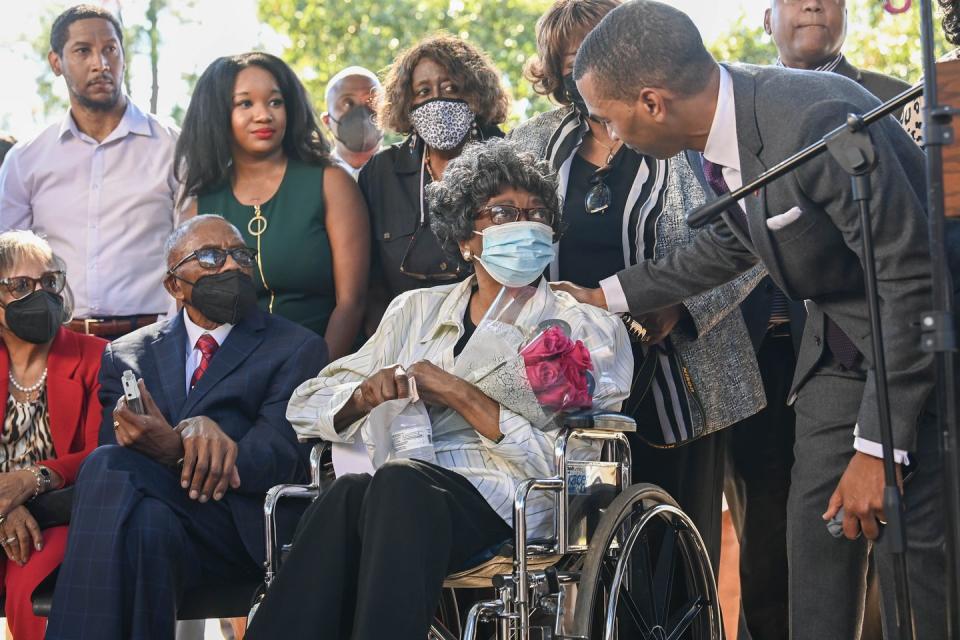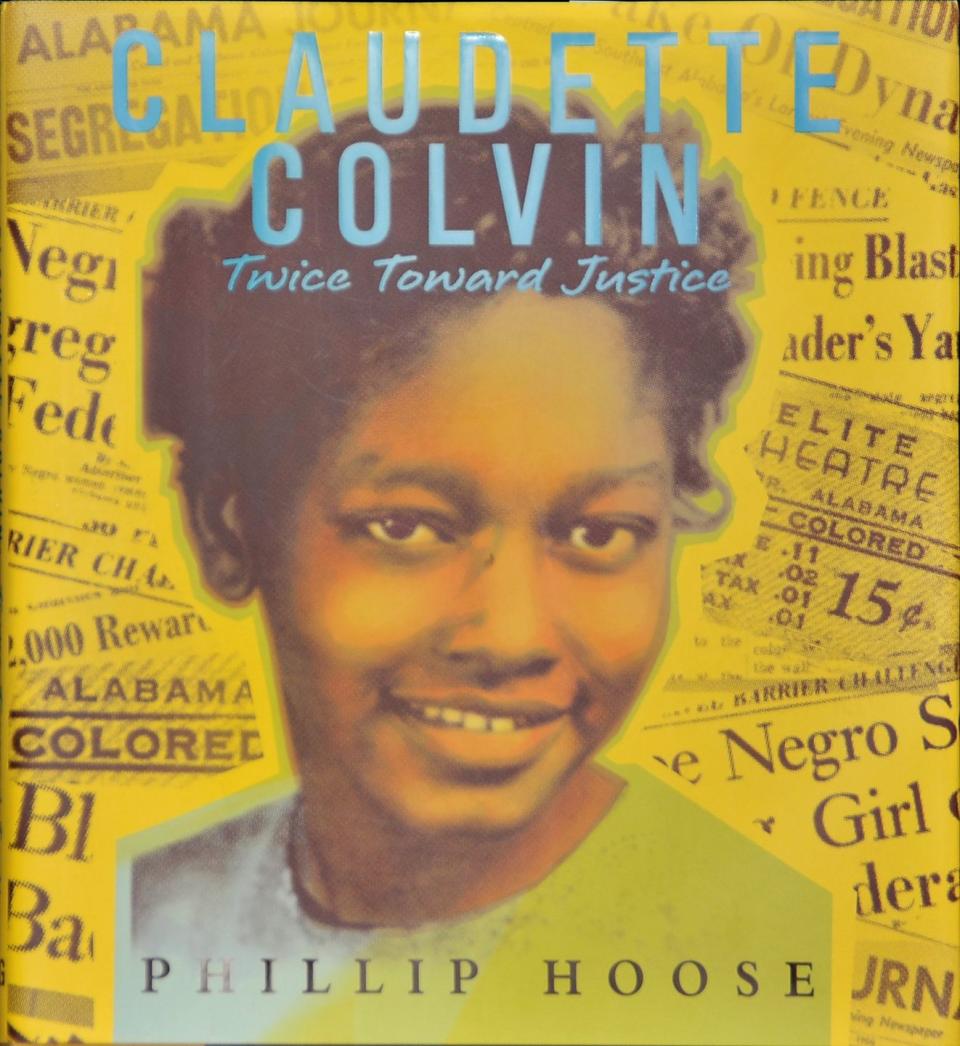What Claudette Colvin’s Bravery Means Today

- Oops!Something went wrong.Please try again later.
- Oops!Something went wrong.Please try again later.
In 2021, Claudette Colvin decided it was time to clear her name. Last October, the 82-year-old civil rights pioneer made the life-changing move to file for the expungement of her decades-old arrest record.
As a teenager in 1955, Colvin famously protested Alabama’s prejudiced bus segregation laws. In March of that year—months before the December Montgomery bus boycott—she refused to give up her seat to a white passenger and was forcibly detained by Montgomery police, then held in an adult jail cell. She later said she was inspired by recent school lessons about Harriet Tubman and Sojourner Truth.
“When a white woman got on the bus and the driver told me to get up from my seat so she could sit down, I felt that [Tubman and Truth] each had a hand on my shoulders pushing me down,” Colvin told Oprah Daily in an interview last year. “History had me glued to the seat.” She would later become one of the original plaintiffs in the court case that brought Montgomery’s bus segregation to an end.
Despite this country’s ongoing battle with systemic racism, it was Colvin’s hope that getting her name officially cleared would serve as proof to current generations—and specifically her five children and six grandchildren—that progress has been made and much more is possible.
“I want them to know that their grandmother stood up for something—against the injustice in America,” she says. “The laws will change, and a lot of people, not only myself, paid the price and made sacrifices. We are not where we’re supposed to be, but don’t take the freedom that we do have for granted.”
On November 24, 2021, Judge Calvin Williams of Montgomery County, Alabama, signed the order to seal and destroy the juvenile court records of Colvin’s arrest at the age of 15. Just weeks before the holidays, Colvin announced the vindicating news of her expungement to the public, giving all who learned of it a sense of hope going into the new year.
Judge Williams, a Montgomery native, grew up hearing Colvin’s story, so the opportunity to preside over her case meant more to him than a single act of justice. “With my background, being born and raised in Montgomery and West Montgomery and in the projects, raised by a single mother, it gives me a different lens,” he says. “As a judge, I sit on the inside of the system and make sure that everybody’s treated fairly, including Ms. Colvin. I try to recognize where [people] came from and try to do justice based on the law, based on facts, but not on any particular prejudice or personal opinions.”
For Lecia Brooks, chief of staff of the Southern Poverty Law Center, Colvin’s expungement casts a different light on the civil rights movement that she says is needed today, particularly during what Brooks calls a “dangerous” time in which conservative leaders across the country are looking to ban critical race theory from public schools and forbid stories like Colvin’s from being taught.

“Claudette Colvin, like any other young person—and we’re experiencing that today as we do with every generation—just didn’t want to put up with it anymore and was brutalized for it,” Brooks says. A teenaged Colvin was aggressively dragged off the bus by police officers and forcibly thrust into the back of squad vehicle when taken into custody. This is in contrast to the much wider known story of Rosa Parks, who nine months later courageously refused to give up her seat to a white man. She was—fortunately—arrested without violent incident.
It would be her act of bravery that became a widely reported landmark event of the civil rights movement, unlike Colvin’s. For activists at the time, as a 42-year-old married seamstress, Parks was the relatable and dignified figure they needed to be the face of the Montgomery bus boycott. Movement leaders were not as confident in a youthful Colvin’s story leading to a triumph of equality.
“Miss Colvin really started this push for more inclusive telling of the stories about our history,” says Brooks. “Her story is particularly important because she was manhandled. She was treated in ways that Mrs. Parks wasn’t. Her story is more in line with what happened to Black people repeatedly during this time of Jim Crow.”

Her perseverance may also serve as a catalyst to clear the records of other civil rights activists. Brooks notes that 85 Montgomery bus boycott movement leaders were indicted for their activism but never faced a trial. They too, dead or alive, deserve a chance at having their records expunged.
Colvin’s attorney, Phillip Ensler, says that in 2022 he plans to work with fellow attorneys, local social justice organizations, and law students to organize a system in which demonstrators with records can see if they qualify for exoneration or expungement. Ensler says that he’s already informally spoken to four people seeking help.
“I think [Colvin’s expungement] really speaks to the continuing moment that we’re experiencing in terms of a racial reckoning and of racial justice. Her courageous stand in showing that she would never give up will serve to inspire today’s activists,” Brooks says. “She was 15 years old and made to serve in adult jail, which is a sad practice that still continues.”
Once again a model of how to bring about change for others by standing up for yourself, Colvin says simply, “I have lived long enough to tell the young people my story, and they should stay strong and not get discouraged.”
You Might Also Like

